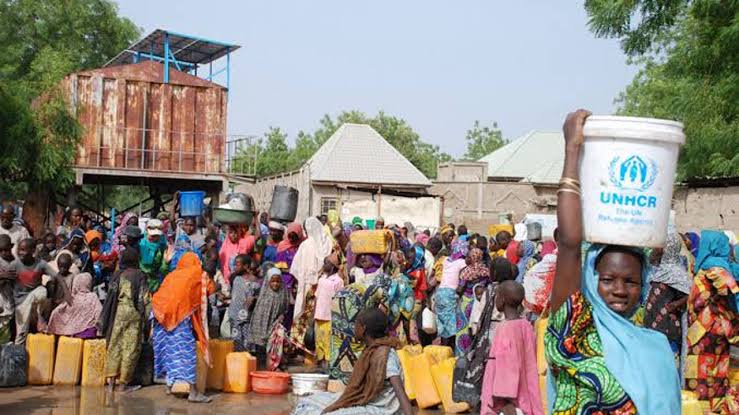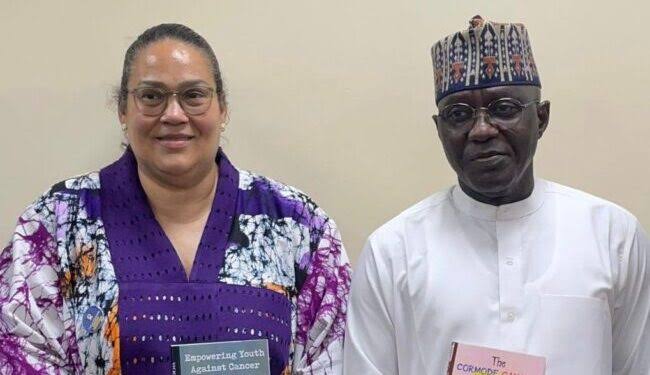According to a statement released in Lagos, the National Commission for Refugees, Migrants, and Internally Displaced Persons and the Cormode Cancer Foundation are teaming up to fight cancer in IDP camps and host communities.
The collaboration aims to teach students about cancer prevention and early diagnosis by establishing Cormode Cancer clubs in schools. Tijani Aliyu, the Federal Commissioner for the Commission, stated that the program will lessen the stigma attached to cancer, enhance the health and well-being of displaced people, and give young people the tools they need to raise awareness of the disease.

“We are excited to endorse launch of the first 150 Cancer Champions in September, a milestone to attract donors.” The foundation’s creator, Dr. Denise Ejoh, stated that the effort will benefit patients with cancer.
“Through this partnership, we hope to educate and empower young people, providing them with tools and knowledge to prevent and detect cancer early,” she told the audience.
She explained that the project would address the emotional and psychological components of cancer and displacement, as well as provide mourning and trauma education to help people build resilience and hope. Mrs Ndidi Odia, club coordinator and daughter of a cancer survivor, emphasised the need of educating carers and providing support to people impacted by illness.
“As someone who has witnessed the difficulties of living with cancer via my mother’s experience, I appreciate the need of teaching people, particularly carers, about this disease.
In Essence
The collaboration between the National Commission for Refugees, Migrants, and Internally Displaced Persons and the Cormode Cancer Foundation is a commendable and much-needed initiative.
Addressing cancer in IDP camps and host communities is crucial, given the unique vulnerabilities these populations face, including limited access to healthcare and heightened exposure to stress, which can exacerbate health issues.
The focus on education, prevention, and early detection is particularly important. Establishing cancer clubs in schools within these communities can empower young people with knowledge and resources that can have a ripple effect, potentially reaching entire families and communities.
This proactive approach can help demystify cancer, reduce stigma, and encourage early diagnosis, which is key to improving outcomes.

















